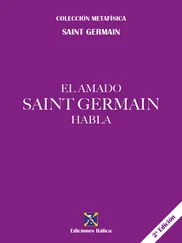Sylvie Germain - Magnus
Здесь есть возможность читать онлайн «Sylvie Germain - Magnus» весь текст электронной книги совершенно бесплатно (целиком полную версию без сокращений). В некоторых случаях можно слушать аудио, скачать через торрент в формате fb2 и присутствует краткое содержание. Год выпуска: 2008, Издательство: Dedalus Ltd, Жанр: Современная проза, на английском языке. Описание произведения, (предисловие) а так же отзывы посетителей доступны на портале библиотеки ЛибКат.
- Название:Magnus
- Автор:
- Издательство:Dedalus Ltd
- Жанр:
- Год:2008
- ISBN:нет данных
- Рейтинг книги:3 / 5. Голосов: 1
-
Избранное:Добавить в избранное
- Отзывы:
-
Ваша оценка:
- 60
- 1
- 2
- 3
- 4
- 5
Magnus: краткое содержание, описание и аннотация
Предлагаем к чтению аннотацию, описание, краткое содержание или предисловие (зависит от того, что написал сам автор книги «Magnus»). Если вы не нашли необходимую информацию о книге — напишите в комментариях, мы постараемся отыскать её.
Magnus — читать онлайн бесплатно полную книгу (весь текст) целиком
Ниже представлен текст книги, разбитый по страницам. Система сохранения места последней прочитанной страницы, позволяет с удобством читать онлайн бесплатно книгу «Magnus», без необходимости каждый раз заново искать на чём Вы остановились. Поставьте закладку, и сможете в любой момент перейти на страницу, на которой закончили чтение.
Интервал:
Закладка:
Erika’s husband delivered the funeral sermon, developed from two biblical texts that Lothar studied constantly towards the end of his life: chapter 19 of the First Book of Kings, in which the prophet Elijah climbs Mount Horeb, and the Sermon on the Mount from St Matthew’s Gospel. Two texts that invite the intellect to undergo a 180° revolution, that require faith to be radically purged of naivety, and the action following from this spiritual rupture to be carried out with as much flexibility as rigour, as much coherence as boldness.
The day after the funeral Myriam gave him a box firmly tied up with string. ‘Don’t open it now,’ she told him with an abruptness typical of shy nervous people, ‘wait until you get home. I made it for you, just for you.’ Faced with Magnus’s look of amazement she added, ‘It’s not an artwork, it’s something much more than that. Or perhaps worse … I don’t know.’ Then, as he was about to thank her for this mysterious gift, she interrupted him. ‘No, don’t thank me. Wait and see what it is before deciding whether you have any reason to thank me or reproach me. But please don’t open it until after you’ve left London. And don’t mention it to anybody, especially not my parents.’ With these words, she made her escape.
He respected Myriam’s wishes and did not open the parcel until he was on the plane taking him back to Vienna. But he had no sooner opened it a fraction than he closed it again. For the entire duration of the journey he remained motionless in his seat, his gaze turned towards the window, his hands clutching the box on his lap.
The sea, below, of steel grey veined with green. And down there, land, with miniature towns and villages, fields divided up into yellow or brown rectangles, dark, densely textured forests, lakes and rivers reduced to sparkling puddles and ribbons of silver-grey. Then tumbling rocks, of mountains black and white invested with placid menacing power. And the clouds at times covering everything, at times with rifts opening up to pull the gaze into vertiginous depths.
And in the cardboard box, Lothar’s death mask.
Resonances
‘This is my brother, Lothar,’ Thea had said.
Lothar, the repudiated brother, passed over in silence: an exile. A stranger who turned up out of nowhere.
‘The life of a saintly man consists more in receiving from God than in giving, more in desiring than possessing, more in becoming pious than being pious,’ declared Martin Luther.
Lothar Schmalker possessed nothing, and he gave in abundance of his welcome poverty.
‘We’ve got some difficult days ahead. But it really doesn’t matter with me now, because I’ve been to the mountaintop. And I don’t mind. Like anybody, I would like to live a long life. Longevity has its place. But I’m not concerned about that now,’ declared Martin Luther King on the eve of his assassination.’
Pastor Lothar Benedikt Schmalker’s longevity required him to climb very slowly the dark side of the mountain.
‘I must be certain of being in the hands of God and not those of men. Then everything becomes easy, even the harshest privation … The important thing is that everything that happens to me finds faith in me …’ wrote the prisoner Dietrich Bonhoeffer.
Lothar Benedikt placed his infirmity in the empty hands of God.
Black milk of first light…
We dig in the air a grave…
‘All these years without any news of you …’ Lothar had said to Magnus.
From now on, there would be no more news of Lothar.
Fragment 23
After Lothar’s death the disquiet Magnus feels in Vienna only increases. Certainly the town is attractive, enchanting even, with its atmosphere such a subtle mixture of melancholy and hedonism, conformity and frivolity, bitterness and irony, courtesy and arrogance. It is pointless to criticize the Viennese, they do it very well themselves, their self-criticism as biting as it is subtle. But Magnus sometimes detects here and there, in the course of a conversation overheard in the street, in a café, on the tram, strains of nostalgia for the great heroic opera of Nazism. Peggy has no sense at all of this defiance, she likes living in this city, and would be willing to extend her stay here indefinitely. However, after seven years in Vienna she finally looks for a teaching post in another country, and lands one in Rome.
Magnus likes these periods of disorder and uncertainty that precede moving to a new home. Time no longer obeys the clock, familiar space is turned upside down, habits are unsettled. Day by day objects disappear into cardboard boxes and packing-cases accumulate along the walls of the apartment where footsteps and voices resonate differently. The place you are preparing to leave suddenly acquires the charm of nostalgia whilst your curiosity about the new country you are moving to increases. Opposites become tangled, desire switches between here and elsewhere, and the present quivers with gentle excitement, tugged between the past and the unknown future.
The days are still long and the evenings mild in this late summer. One afternoon about five o’clock, Magnus brings home a bottle of champagne to celebrate the completion of their packing. He spreads over some of the packing-cases the ivory damask tablecloth faintly patterned with pink and orange flower-like stain-rings and sets out two champagne glasses together with an assortment of pastries, for which Peggy has a weakness. A pearly white rose with a subtle fragrance stands in a glass vase. This variety of white rose has the lovely name of Schneewittchen, meaning Snow White; it is also sometimes called Iceberg. Teddy bear Magnus is also part of the decor, propped up against the bottle. He has aged a little, his head slightly tilts towards one shoulder, the wool of his muzzle is rough, the leather of his ears and paws is cracked, but his eyes have kept their soft buttercup gleam. He does not have a scarf round his neck any more, but a little cord with a tiny red velvet bag hanging from the end of it.
He is not merely part of the decor, he is involved in this festive occasion, as he has always been involved in his namesake’s life. As for the tablecloth, it is not there to recall the painful farewell dinner at the house in London, but for having offered a glimpse of a dream of love that has become a total reality. This is a time to look to the future, not to the past and its ghosts.
When the bottle of champagne is empty Magnus fills it with water in which he puts the Schneewittchen stem, whose petals have a pale pink hue in the light of the setting sun. He repositions the soft toy against this vase. Then he removes the velvet pocket tied round the teddy bear’s neck and offers it to Peggy. She opens the little bag and extracts a ring from it. A band of pure gold with a finely wrought zigzag inlay of red rubies. She stares at the ring lying in the hollow of her palm as if it were some unusual plant or insect, and not a piece of jewellery. Magnus takes it and puts it on her ring finger; but her finger is too thin, and so is her middle finger; so he tries it on her index finger. Only on this finger is the gold band not too loose. ‘Well,’ says Magnus, ‘a finger that is used to point to everything, even a long way off, and also to call for silence, is a very appropriate one on which to wear a perpetual engagement ring.’ Inside the band he has engraved ‘You’. Just that one word, which he often uses to address Peggy — ‘Hello, You’, ‘Goodbye, You’, is how he usually greets her, or ‘Hello, You?’ when he telephones her. You, a name reserved solely for Peggy, a personal pronoun replete with desire and lent an importance that does not, however, exclude an element of self-mockery, Magnus making fun of his own besotted happiness.
Читать дальшеИнтервал:
Закладка:
Похожие книги на «Magnus»
Представляем Вашему вниманию похожие книги на «Magnus» списком для выбора. Мы отобрали схожую по названию и смыслу литературу в надежде предоставить читателям больше вариантов отыскать новые, интересные, ещё непрочитанные произведения.
Обсуждение, отзывы о книге «Magnus» и просто собственные мнения читателей. Оставьте ваши комментарии, напишите, что Вы думаете о произведении, его смысле или главных героях. Укажите что конкретно понравилось, а что нет, и почему Вы так считаете.












